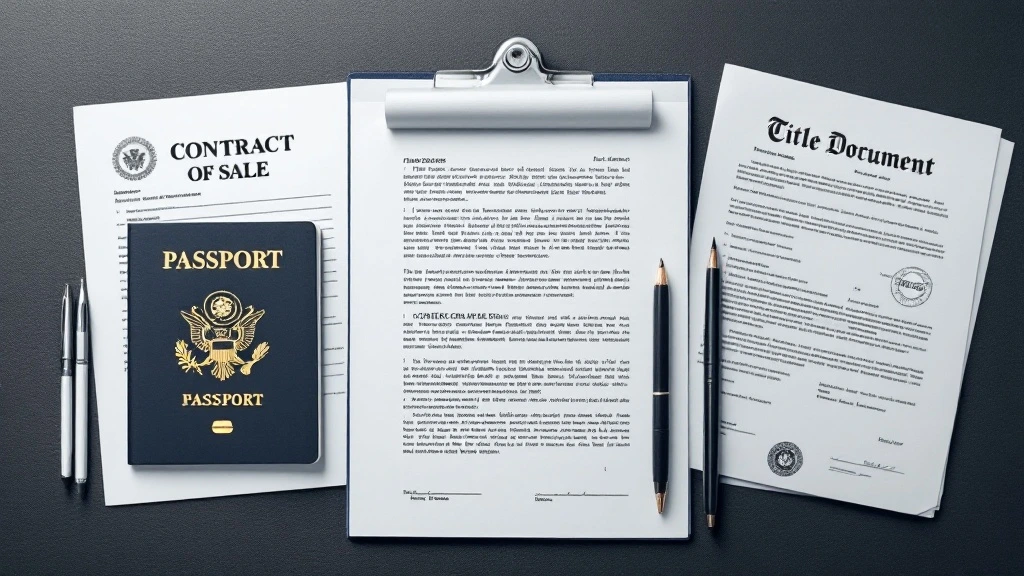 Key Documents Needed for Buying Property in Cyprus: Your Ultimate Guide
Key Documents Needed for Buying Property in Cyprus: Your Ultimate GuideCyprus, with its sun-drenched beaches, vibrant culture, and investor-friendly policies, has long been a magnet for property buyers. Whether you’re eyeing a luxury villa in Limassol or a cozy apartment in Paphos, the process of buying property in Cyprus is straightforward—provided you have the right documents in hand.
But let’s be honest: navigating the paperwork can feel like deciphering an ancient scroll. Fear not. This guide breaks down the essential documents you’ll need, ensuring your property purchase is as smooth as a Mediterranean breeze.
Why Cyprus? A Quick Overview
Before diving into the paperwork, it’s worth noting why Cyprus is such a hotspot for property investment. The island boasts a stable real estate market, favorable tax policies, and a legal system rooted in English Common Law, making it accessible for international buyers. Plus, with its permanent residency program, investing €300,000 in property can secure your stay in this Mediterranean paradise.
Your passport is your golden ticket. Whether you’re an EU citizen or a third-country national, a valid passport is non-negotiable. Non-EU buyers will also need to apply for permission from the Council of Ministers, a process that requires additional documentation.
Cyprus banks and authorities want to ensure you can afford your investment. Be prepared to provide:
A clean criminal record is a must. This document ensures you meet the legal requirements for property ownership and residency. You can obtain this from your local authorities or through a service that specializes in international criminal record checks.
 The Contract of Sale is the cornerstone of your property transaction. It outlines the terms of the sale, including the purchase price, payment schedule, and completion date. Once signed, it must be deposited at the Land Registry within six months to secure your rights.
The Contract of Sale is the cornerstone of your property transaction. It outlines the terms of the sale, including the purchase price, payment schedule, and completion date. Once signed, it must be deposited at the Land Registry within six months to secure your rights.
Before signing anything, conduct a thorough title deed search. This ensures the property is free of encumbrances, such as mortgages or legal disputes. Your lawyer can handle this, but it’s a step you can’t afford to skip.
If you’re buying land or a newly constructed property, verify that all necessary permits are in place. This includes planning permissions and building approvals, which are crucial for avoiding future headaches.
Since 2010, all properties in Cyprus require an EPC. This document rates the property’s energy efficiency and is a legal requirement for both sales and rentals. You can find more information on the official EPC guidelines.
Cyprus offers a reduced VAT rate of 5% for first-time buyers purchasing a primary residence. To qualify, you’ll need to provide proof of eligibility, such as a declaration of intent to use the property as your main home. Visit the Cyprus Tax Department for more details.
 If you can’t be present for the transaction, a Power of Attorney allows a trusted representative to act on your behalf. This document must be certified at the Cyprus Embassy or Consulate in your home country.
If you can’t be present for the transaction, a Power of Attorney allows a trusted representative to act on your behalf. This document must be certified at the Cyprus Embassy or Consulate in your home country.
If you’re applying for permanent residency through your property investment, you’ll need additional documents, including proof of health insurance and a detailed application form. You can start the process on the official residency application portal.
Navigating Cyprus’s property laws can be tricky, especially for non-EU buyers. A local lawyer ensures all documents are in order and protects your interests throughout the process. Consider consulting a reputable law firm in Cyprus.
Beyond the purchase price, factor in transfer fees (3-8%), stamp duty (0.15-0.2%), and legal fees (1-2%). These costs can add up, so budget accordingly. For more financial insights, consult a financial advisor.
Cyprus is notorious for delays in issuing title deeds. While efforts have been made to streamline the process, it’s wise to confirm the status of the title deed before committing.
| Document/Cost | Purpose | Approximate Cost/Timeframe |
|---|---|---|
| Passport | Proof of identity | N/A |
| Contract of Sale | Legal agreement between buyer and seller | €2,000-€5,000 (legal fees) |
| Title Deed Search | Confirms property ownership | 1-2 weeks |
| VAT Application | Reduces VAT to 5% for primary residences | Varies |
| Residency Application | Secures permanent residency | 2-3 months |
 Buying property in Cyprus is more than a transaction—it’s an investment in a lifestyle. By gathering the right documents and working with trusted professionals, you can turn your Mediterranean dream into reality.
Buying property in Cyprus is more than a transaction—it’s an investment in a lifestyle. By gathering the right documents and working with trusted professionals, you can turn your Mediterranean dream into reality.
Ready to take the plunge? Start by consulting a local real estate expert or legal advisor to guide you through the process.
Have questions or need further clarification? Drop a comment below or reach out to us directly. Your Cyprus adventure awaits!